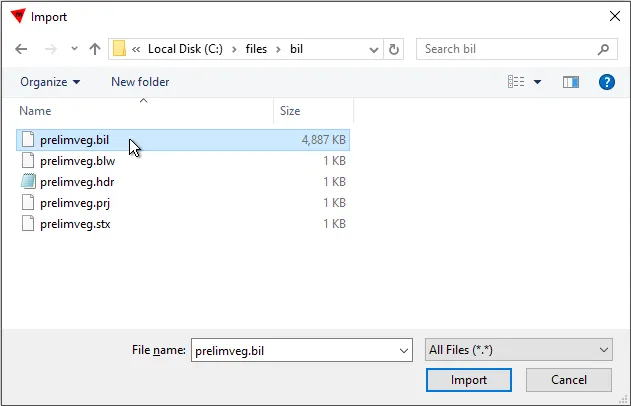ASC (American Standard Code for Information Interchange)
ASC (American Standard Code for Information Interchange) file format is a 3D text format developed by Autodesk for easier exchange of 3D data between various 3D modeling software. ASC files save 3D graphics (containing geometric points and shape information) in ASCII text format and can be opened in any text editor, but to view the 3D graphics, the file must be opened in 3D Studio Max, AutoCAD or other CAD software that supports the ASC format.
2025-09-16 14:47:27TIF(Tagged Image File Format)
TIF (Tagged Image File Format, with the extension .tif or .tiff) is a flexible image file format developed by Aldus Corporation in 1986 (now owned by Adobe). TIF is widely used to process high-quality image data, especially in printing, photography, geographic information systems (GIS), and medical imaging. TIF supports a wide range of image data types, including monochrome images, grayscale images, RGB color images, and multispectral images.
2025-09-16 14:47:28TIFF (Tagged Image File Format)
TIFF (Tagged Image File Format) is a commonly used image file format that supports multiple compression methods and color models, and can store multi-page documents, image metadata, alpha channels and other information. TIFF files are usually used in high-quality prints, publications and image processing, and can also be used to store scanned paper documents or photos. Due to its support for flexible pixel and metadata storage, TIFF format has been widely used in many industries.
2025-09-16 14:47:28OVR(Overview File)
OVR (Overview File) is a file format used to optimize the rapid access and visualization of large-scale imagery or geographic data. It is commonly used in geographic information systems (GIS) as a pyramid file or thumbnail storage method for image data, helping users quickly load, view, and process image data at different resolutions. OVR files reduce the frequent access to original high-resolution data by pre-generating image data of different resolutions, thus significantly improving data rendering efficiency.
2025-09-16 14:47:29RST(reStructuredText)
RST file, or reStructuredText file, is a lightweight markup language that uses simple markup syntax to write documents. It was first created and developed by David Goodger in 2002 and is mainly used for document writing and formatting. RST files usually have the extension “.rst” and use some specific symbols and structures to represent the various parts of the document, such as titles, lists, links, references, etc.
2025-09-16 14:47:29RDC(IDRISI Raster Documentation File)
RDC (IDRISI Raster Documentation File) is a format that stores raster data as a three-dimensional data cube. Each data unit consists of spatial location, time, and attribute values. In RDC, the spatial location can be longitude and latitude, UTM coordinates, or other geographic spatial reference systems. The time can be one or more time series, which can represent data at multiple time points or time series data. The attribute value is the characteristic data of the raster cell, such as temperature, altitude, or other geographic information.
2025-09-16 14:47:29BIL (Band Interleaved by Line)
BIL (Band Interleaved by Line) is a geospatial data format commonly used to store remote sensing images and geographic information system (GIS) data. BIL is a multi-band image storage method with interleaved lines. Its core feature is to store multi-band image data alternately in the file in line order. That is, each line of data contains the pixel values of all bands, and the storage order is: the first line of band 1, the first line of band 2, …, the first line of band n, and then the second line of all bands, and so on.
2025-09-16 14:47:30BIP(Band Interleaved by Pixel)
BIP (Band Interleaved by Pixel) is a raster data storage format. It stores all bands for each pixel together in order, which means that all band values for a pixel are stored adjacently, instead of storing all pixel values of the first band together, then the second band, and so on. In this format, each pixel value in the raster data is stored in consecutive bytes, rather than in band or sample order as in the BIL or BSQ format. Therefore, in the BIP format, the distance between pixels is minimized, so it is more efficient when reading and writing data.
2025-09-16 14:47:30BSQ(Band Sequential)
BSQ (Band Sequential) is a file format for storing multi-band raster data, which is widely used in remote sensing, geographic information system (GIS), image processing and other fields. BSQ is a format that stores data in band order. The data of each band is arranged in a linear manner, and the storage structure is simple and efficient.
2025-09-16 14:47:31PIX(PCI Geomatics Database File)
PIX (PCI Geomatics Database File) is a file format used to store and process image and raster data. The PIX format is often used to process remote sensing data, such as satellite images, digital elevation models, and meteorological data. It is a binary format that can store multi-channel, multi-resolution data, supports image compression, and can store metadata and geospatial information.
2025-09-16 14:47:31
 Service
Service










